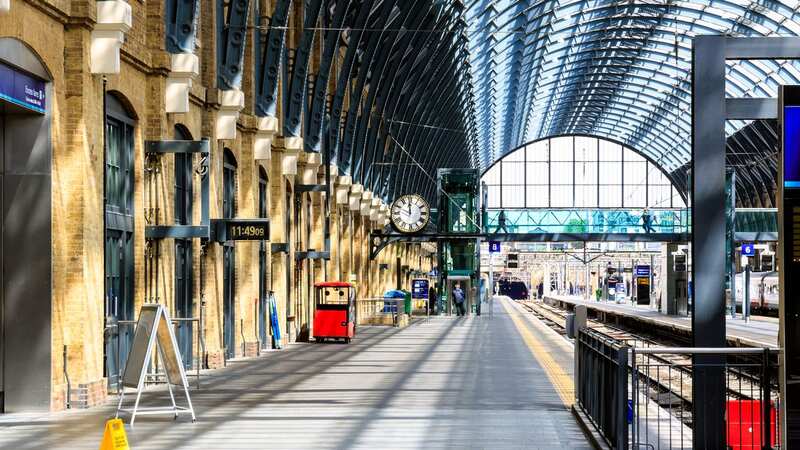Train prices to rise as huge increase confirmed in blow for travellers

Train ticket prices will rise by almost 5% next year in a blow for travellers.
Regulated rail fares in England will increase by up to 4.9% from March 3, the Department for Transport has said. Train travellers already faced a 5.9% rise in rail fares rise in England and Wales this March. The increase was automatically applied to regulated rail fares.
The DfT has now set a cap of 4.9% for increases to most fares regulated by the Government, which include season tickets on most commuter journeys, some off-peak return tickets on long distance routes and flexible tickets for travel around major cities.
July's RPI measure of inflation, which is traditionally used to determine annual fare rises, was 9.0%.
TUC General Secretary Paul Nowak said: “Today’s excessive hike sums up everything that is wrong with our rail network. Ministers are tone deaf to the ongoing cost-of-living crisis that remains a real burden on working people right across the economy.
 Return train tickets could be scrapped forcing Brits to buy two singles
Return train tickets could be scrapped forcing Brits to buy two singles
“UK passengers are already paying the highest fares in Europe in return for late-running, overcrowded and routinely cancelled trains. Meanwhile private train operating companies – and the government – are sacrificing much-needed-investment by lining the pockets of shareholders. It is time to bring services back into public ownership so that passengers and the workforce get a fair deal.”
Maryam Eslamdoust, general secretary at rail union the TSSA union, said: “This will be a cold Christmas for millions who use the rail network because these fare rises are going to hit passengers hard in the pocket.
“We remain in a cost of living crisis and whatever spin the Conservative government tries to put on this announcement the only winners will again be the profiteering rail companies. The government should have given workers the Christmas present we all want and issued a rail fares’ freeze which would help grow the economy and encourage people to use our trains – the greenest form of mass transport.”
A spokesman for watchdog London TravelWatch said: “These new rail fares will see already hard-pressed passengers hit with another unwelcome price hike. Reform to rail fares and ticketing could not be more urgent now.”
Liberal Democrat Leader Ed Davey said: “This is yet another hit on commuters pockets who have put up with so much chaos and disruption on our railways this past year. People are paying . more for less on our rail network. Nowadays it is a miracle if the trains are actually running, let alone on time. We need real action to tackle the cost of living crisis. The Government must immediately announce a rail fare freeze.“
Transport Secretary Mark Harper said train services "are still losing money" post the pandemic, explaining that the rise "strikes a balance" between railways needing more cash but not dropping the load on passengers. "Having met our target of halving inflation across the economy, this is a significant intervention by the Government to cap the increase in rail fares below last year's rise," he said.
"Changed working patterns after the pandemic mean that our railways are still losing money and require significant subsidies, so this rise strikes a balance to keep our railways running, while not overburdening passengers. We remain committed to supporting the rail sector reform outdated working practices to help put it on a sustainable financial footing."
The Scottish Government announced on Wednesday that all ScotRail fares will rise by 8.7% from April 1. The hikes come amid scrutiny of rail firms’ finances. Data from the Office for Rail and Road shows seven franchised train operators were expected to pay dividends in the latest year totalling £76 million. Yet analysis from the BBC revealed that between January and July of last year, just 56% of trains were on time and 41% were at least one minute late.
Read more similar news:
Comments:
comments powered by Disqus

































